
Kaolack: The Vibrant Heart of Senegalese Culture
Kaolack is a bustling city located in the heart of Senegal, known for its rich cultural heritage and vibrant marketplace. The city is situated along the Saloum River, making it a crucial hub for trade and commerce. As you stroll through the streets of Kaolack, you'll be captivated by the harmonious blend of traditional and modern influences that shape its unique character. One of the city's most notable attractions is the Kaolack Grand Market, one of the largest and busiest markets in West Africa. Here, you can find everything from colorful textiles and handcrafted jewelry to aromatic spices and fresh produce. The lively atmosphere and friendly vendors make it a must-visit destination for any traveler. Kaolack is also home to several historical and cultural landmarks. The Saloum Delta, a UNESCO World Heritage site, is just a short drive away and offers stunning views of mangroves, islands, and wildlife. Additionally, the city's mosques and colonial architecture provide a glimpse into its diverse history and religious significance. Whether you're exploring its vibrant markets, discovering its historical sites, or simply soaking in the local culture, Kaolack offers an unforgettable experience for every visitor.
Local tips in Kaolack
- Visit the Kaolack Grand Market early in the morning to avoid the crowds and get the best selection of goods.
- Consider hiring a local guide to explore the Saloum Delta for a more insightful experience.
- Dress modestly when visiting religious sites out of respect for local customs.
- Try local dishes like 'thiéboudiène' (Senegalese fish and rice) at one of the city's traditional restaurants.
- Bring cash, as many local vendors in the markets do not accept credit cards.
Kaolack: The Vibrant Heart of Senegalese Culture
Kaolack is a bustling city located in the heart of Senegal, known for its rich cultural heritage and vibrant marketplace. The city is situated along the Saloum River, making it a crucial hub for trade and commerce. As you stroll through the streets of Kaolack, you'll be captivated by the harmonious blend of traditional and modern influences that shape its unique character. One of the city's most notable attractions is the Kaolack Grand Market, one of the largest and busiest markets in West Africa. Here, you can find everything from colorful textiles and handcrafted jewelry to aromatic spices and fresh produce. The lively atmosphere and friendly vendors make it a must-visit destination for any traveler. Kaolack is also home to several historical and cultural landmarks. The Saloum Delta, a UNESCO World Heritage site, is just a short drive away and offers stunning views of mangroves, islands, and wildlife. Additionally, the city's mosques and colonial architecture provide a glimpse into its diverse history and religious significance. Whether you're exploring its vibrant markets, discovering its historical sites, or simply soaking in the local culture, Kaolack offers an unforgettable experience for every visitor.
When is the best time to go to Kaolack?
Iconic landmarks you can’t miss
Great Mosque of Medina Baye Kaolack
Discover the spiritual and architectural wonders of the Great Mosque of Medina Baye in Kaolack, a cornerstone of Senegalese culture and faith.
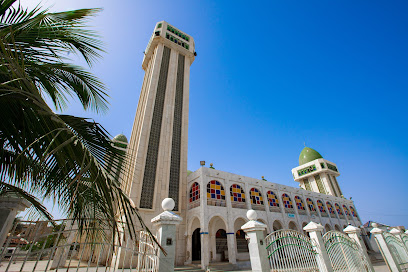
Adjana Hotel
Discover the perfect blend of comfort and local charm at Adjana Hotel in Kaolack, Senegal, your gateway to vibrant culture and stunning landscapes.

Restaurant Blue Bird
Discover the vibrant flavors of Senegal at Restaurant Blue Bird in Kaolack, where authentic cuisine meets warm hospitality for an unforgettable dining experience.
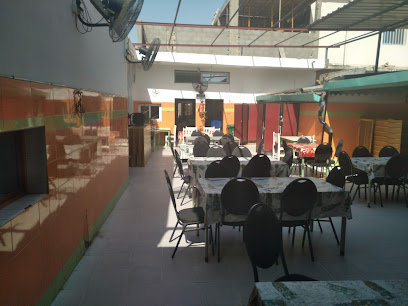
DJOLLOFF INN
Experience comfort and local charm at Djolloff Inn, your ideal base for exploring the vibrant culture and attractions of Kaolack, Senegal.

Grande Mosquée Léona Niassène
Explore the Grande Mosquée Léona Niassène, a stunning architectural masterpiece and spiritual hub in Kaolack, Senegal, reflecting the rich cultural heritage of the region.
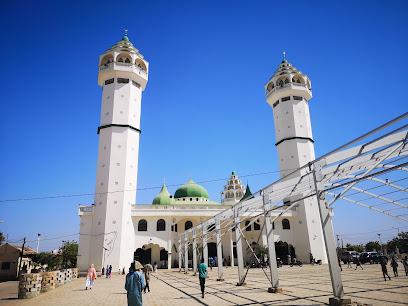
Mosquée de Keur Serigne Maloum Diaw Kaloack
Explore the Mosquée de Keur Serigne Maloum Diaw Kaloack: A Jewel of Islamic Heritage in Kaolack, Senegal, Offering Peaceful Reflection and Cultural Insight.
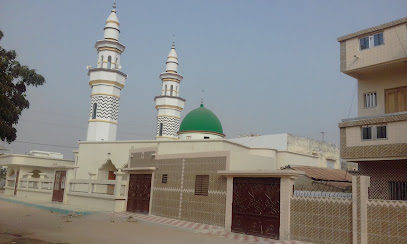
Mosquée de Kaolack
Discover the Mosquée de Kaolack, a stunning architectural marvel in Senegal that exemplifies rich culture and spirituality.
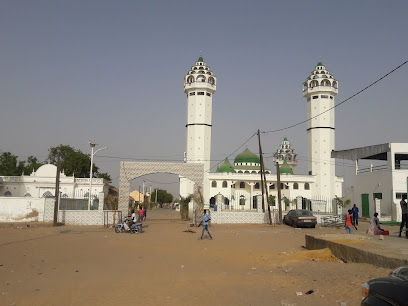
Middle School Mboutou Sow
Explore the vibrant educational landscape of Middle School Mboutou Sow, a cultural gem in the heart of Kaolack, Senegal.
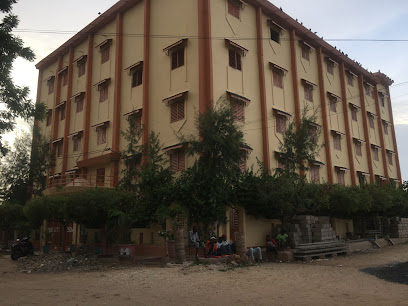
Mosquée de Kaolack-Sud
Discover the serene beauty and cultural richness of Mosquée de Kaolack-Sud, a stunning architectural gem in the heart of Senegal.
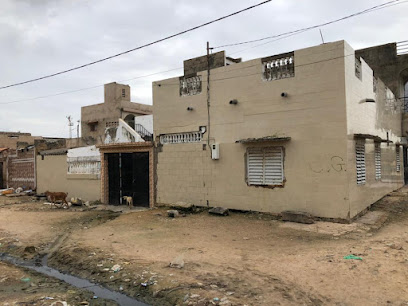
Leona Niassene
Experience the charm of Kaolack with a stay at Leona Niassene, where comfort meets local culture in well-appointed apartments.
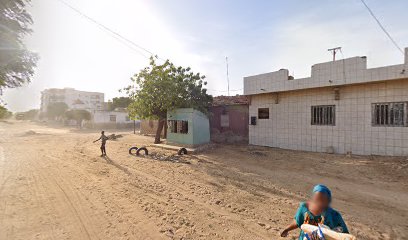
Grande Mosquée de Mboulougne
Explore the Grande Mosquée de Mboulougne in Kaolack, a stunning blend of spiritual significance and architectural beauty reflecting Senegal's rich heritage.
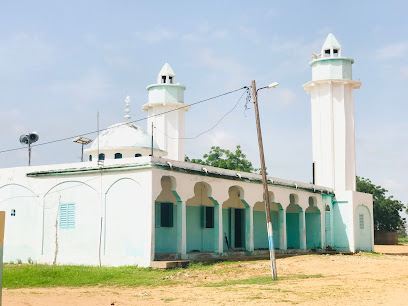
Monument Texas
Discover the heart of youth empowerment at Monument Texas in Kaolack, where education and community spirit unite for a brighter future.
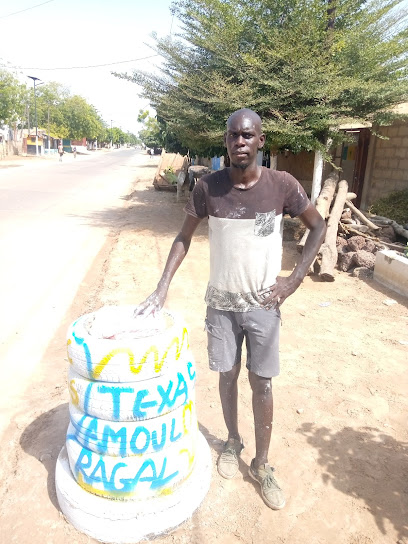
Abdoulaye Papa Dame
Discover the rich cultural tapestry at Abdoulaye Papa Dame Museum in Kaolack, a treasure trove of Senegal's history and traditions.
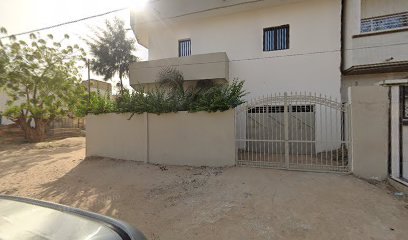
Kaolack Infos
Explore the cultural heartbeat of Kaolack, Senegal at Kaolack Infos - your essential resource for local insights and vibrant experiences.
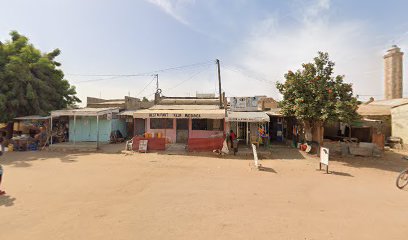
Grande mosquée Ndorongu Kaolack
Discover the Grande Mosquée Ndorongu, a stunning example of Islamic architecture in Kaolack, Senegal, and immerse yourself in the local culture and spirituality.
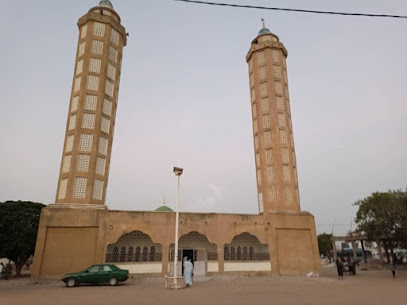
Unmissable attractions to see
Fathala
Explore Fathala in Toubakouta, a captivating tourist attraction showcasing stunning landscapes and rich biodiversity in Senegal.
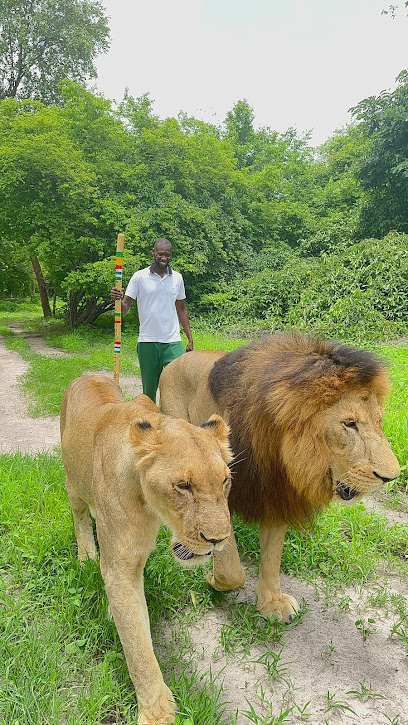
Saloum Delta
Explore the breathtaking biodiversity and rich cultural heritage of Senegal's Saloum Delta, a UNESCO World Heritage site offering adventure and tranquility.
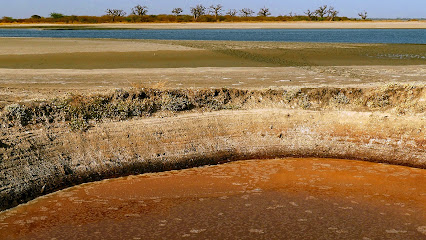
Essential places to dine
Restaurant Blue Bird
Discover the flavors of Senegal at Restaurant Blue Bird in Kaolack - where culinary tradition meets modern dining.
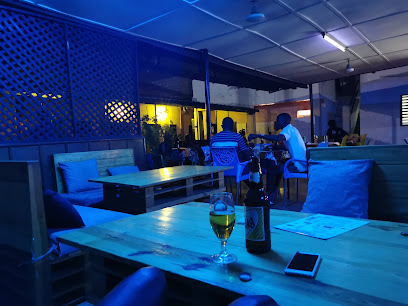
Djolof Chicken Kaolack
Experience authentic Senegalese cuisine at Djolof Chicken in Kaolack – home of delicious chicken and flavorful rice dishes.
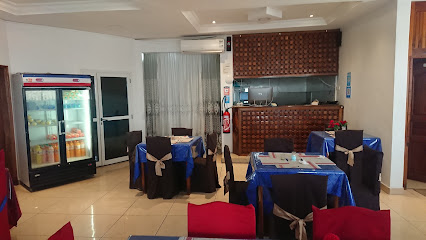
Saveurs Roses
Discover the flavors of Senegal at Saveurs Roses - where local cuisine meets warm hospitality in Kaolack.
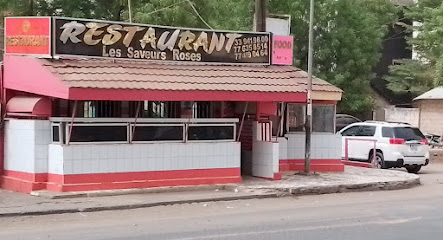
Le Farisse
Experience authentic Senegalese flavors at Le Farisse in Kaolack - a culinary haven for food lovers.
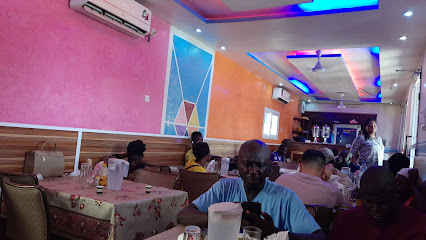
RESTAURANT MANCHALLAH
Discover authentic Senegalese cuisine at Restaurant Manchallah in Kaolack - where every dish tells a story.
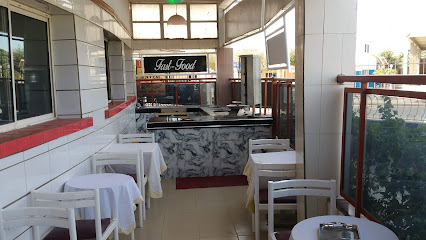
Restaurant Sun Saloum
Savor the authentic flavors of Senegal at Restaurant Sun Saloum in Kaolack - where every dish tells a story.
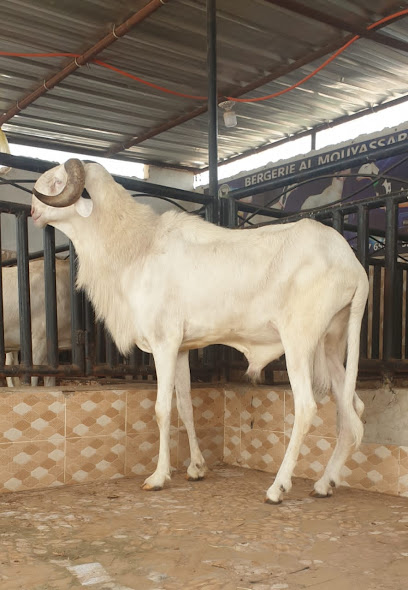
La Fontaine
Experience authentic Senegalese cuisine at La Fontaine in Kaolack—where local flavors meet warm hospitality.
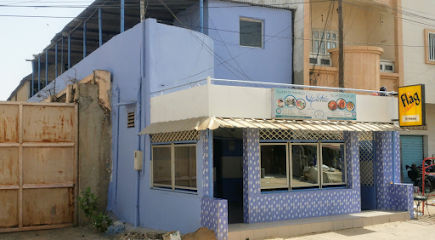
Bakery
Discover the rich flavors of Kaolack at this charming bakery offering delectable pastries and breads that celebrate local culinary traditions.
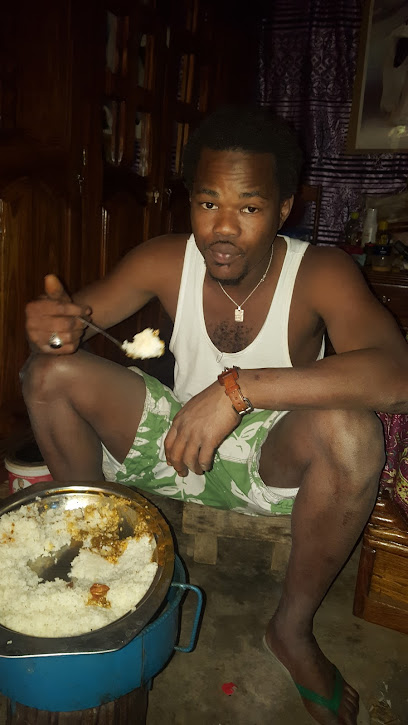
RESTAURANT FAST FOOD CHEZ FA
Discover the best of fast food at Restaurant Fast Food Chez Fa in Kaolack – where local flavors meet quick service!
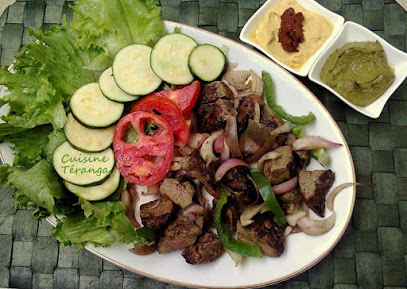
Kuyito
Experience authentic Senegalese cuisine at Kuyito in Kaolack, where every dish tells a story of tradition and flavor.
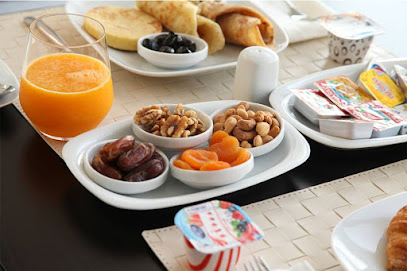
Restaurant Téranga Chez Anna
Experience authentic Senegalese flavors at Restaurant Téranga Chez Anna in Kaolack – where every meal tells a story.
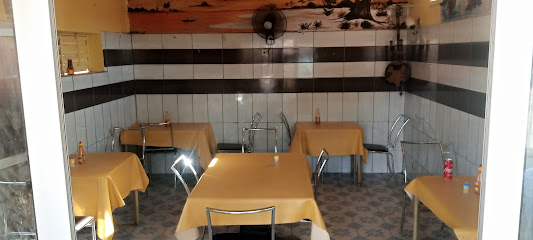
TROPICAL
Experience the vibrant flavors of Senegal at Tropical Restaurant in Kaolack, where culinary tradition meets modern dining.
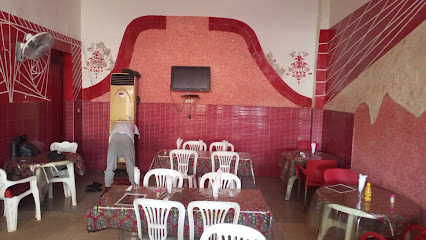
Restaurant LA PALASSE
Experience authentic Senegalese cuisine at Restaurant LA PALASSE in Kaolack – where delicious flavors meet warm hospitality.
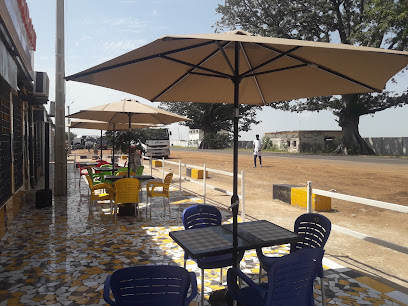
Restaurant Chawarma Fast Food Chez.Fa
Discover delicious fast food delights at Restaurant Chawarma Fast Food Chez.Fa in Kaolack – where local flavors meet quick bites.
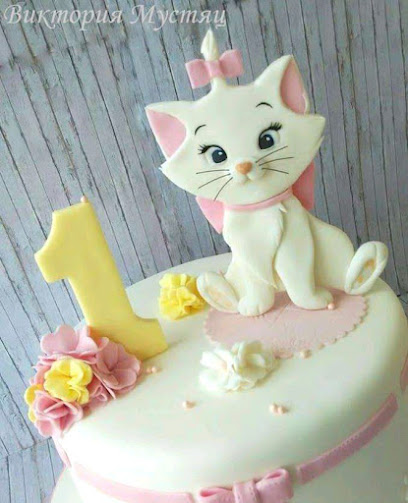
Bouvette Khadim kaolack
Experience authentic Senegalese cuisine at Bouvette Khadim, where every dish tells a story of local flavors and traditions.
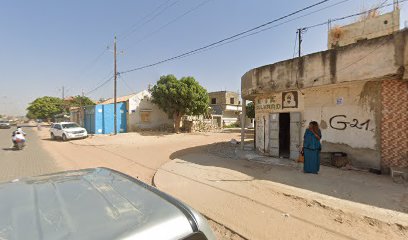
Markets, malls and hidden boutiques
Marché Central de Médina Baye Niass
Immerse yourself in the colorful ambiance of Marché Central de Médina Baye Niass, a bustling market in Kaolack filled with local crafts, food, and vibrant culture.
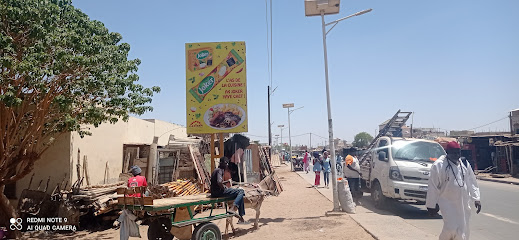
Edk Kaolack
Discover the vibrant Edk Kaolack, a general store in Senegal where local culture meets unique shopping experiences.
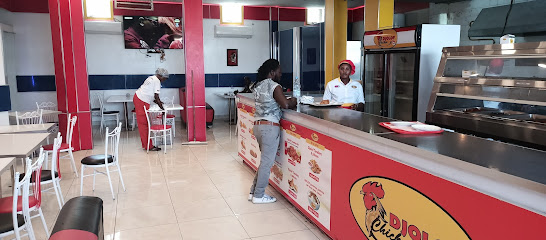
Auchan Kaolack
Experience the heart of Kaolack at Auchan, your go-to supermarket and shopping mall for local products and vibrant culture.
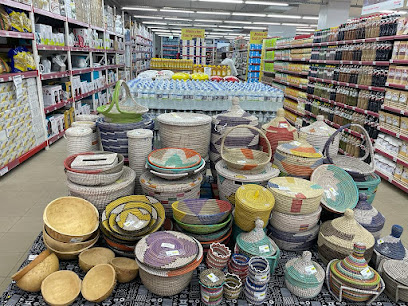
KBSB (Keur Bamba Sunu Boutique)
Explore KBSB in Kaolack, Senegal - a treasure trove of authentic home goods and local crafts that embody Senegalese culture.
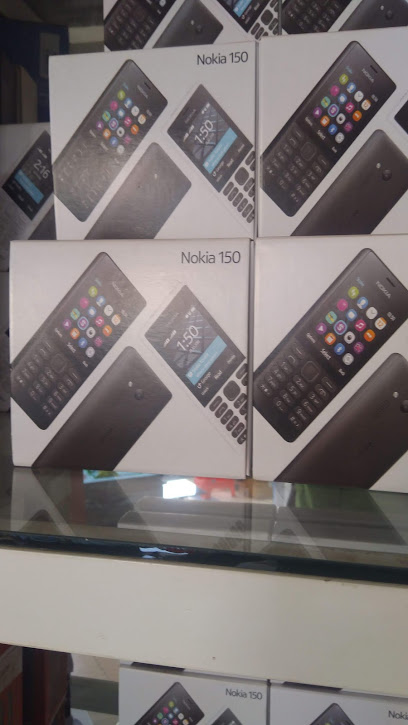
Alimentation wakeur Mouhidina samba Diallo
Discover the essence of Senegalese cuisine at Alimentation Wakeur in Kaolack, your gateway to local delicacies and vibrant flavors.
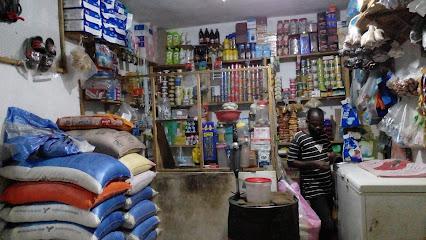
Mineka Bâches
Discover unique home goods that capture the essence of Senegalese craftsmanship at Mineka Bâches in Kaolack.
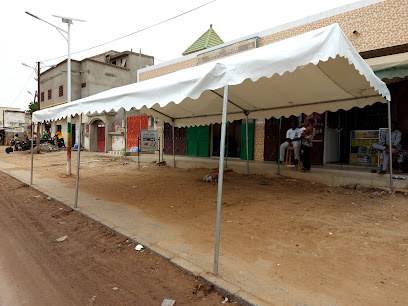
Africa chips Sénégal
Experience the vibrant flavors and authentic crafts of Senegal at Africa Chips Sénégal, a must-visit consignment shop in Kaolack.
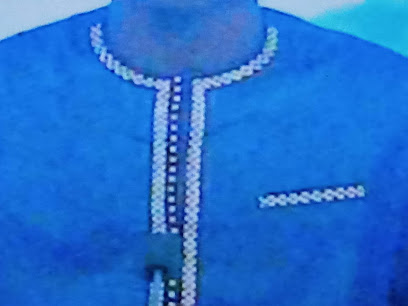
Kaolack
Explore Kaolack, the cultural heartbeat of Senegal, where vibrant markets and rich traditions await every traveler.
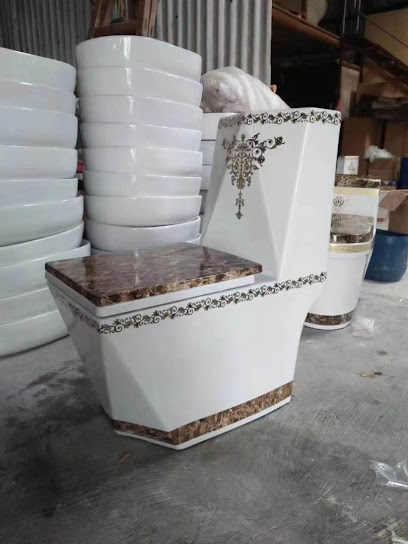
Ocass
Explore Ocass in Kaolack for an authentic shopping experience filled with local crafts and Senegalese culture.
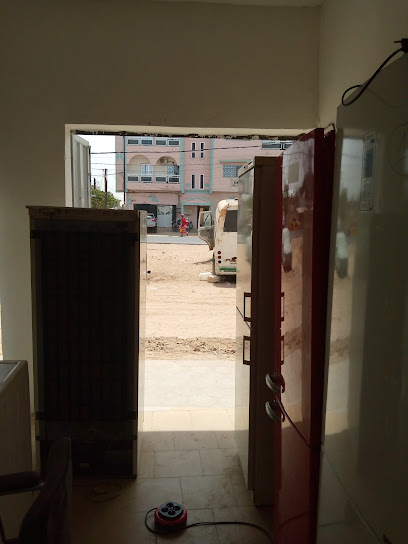
Saloum Store
Explore the vibrant flavors of Senegal at Saloum Store in Kaolack, where local culinary delights await your discovery.
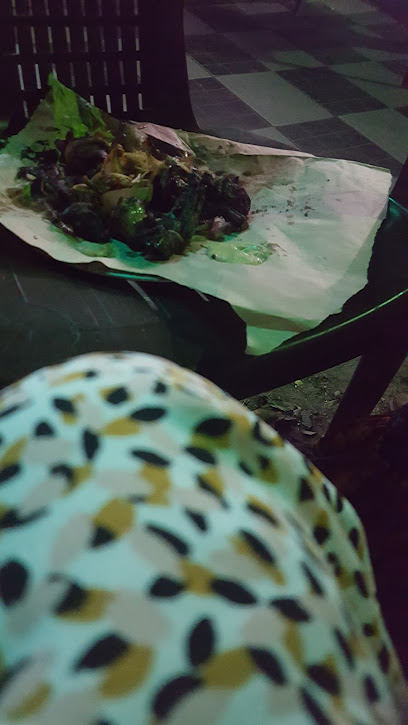
Boutique Tata
Explore Boutique Tata in Kaolack for an authentic taste of Senegalese cuisine and a unique selection of local products.
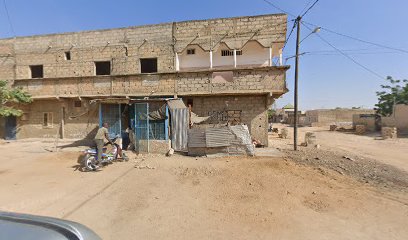
Showroom SEBS
Explore Showroom SEBS in Kaolack for all your hardware needs, offering quality tools and supplies for every project.
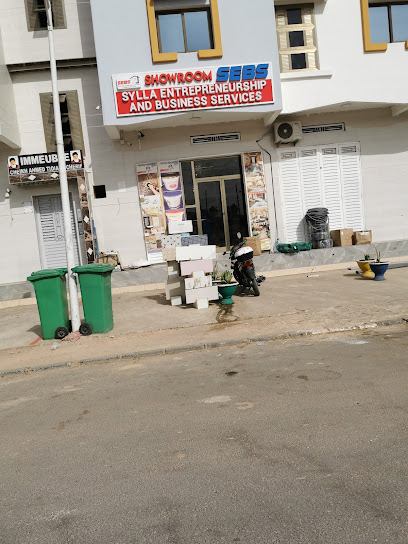
ndorong
Explore Ndorong, a vibrant grocery store in Kaolack, where local flavors and authentic Senegalese ingredients await your discovery.

Forever Aloe Vera Kaolack
Explore the health and beauty benefits of aloe vera at Forever Aloe Vera Kaolack, your go-to destination for natural wellness products.
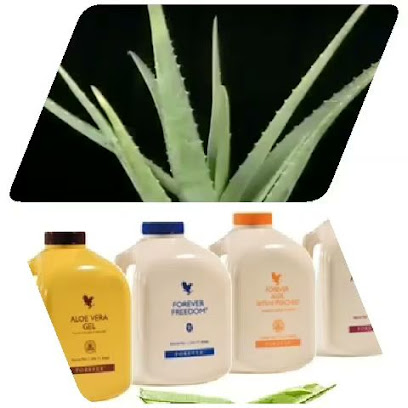
Del Tew Couture
Discover the vibrant world of Senegalese fashion at Del Tew Couture, where traditional elegance meets modern style in Kaolack.
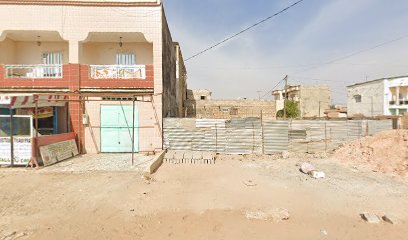
Essential bars & hidden hideouts
Le Relais Hotel
Experience the perfect blend of comfort and local charm at Le Relais Hotel in Kaolack, your gateway to Senegal's vibrant culture.

Restaurant Blue Bird
Savor the authentic flavors of Senegal at Restaurant Blue Bird in Kaolack, where every dish tells a story of tradition and taste.
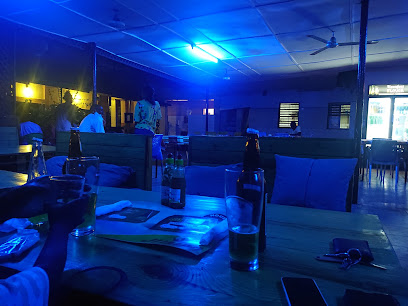
Edk Kaolack
Explore the essence of Senegal at Edk Kaolack, your gateway to local goods and cultural treasures in the heart of Kaolack.
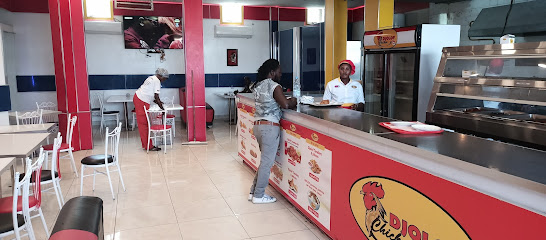
ARC EN CIEL
Discover the warmth of Senegalese hospitality at ARC EN CIEL, where comfort meets culture in the vibrant city of Kaolack.
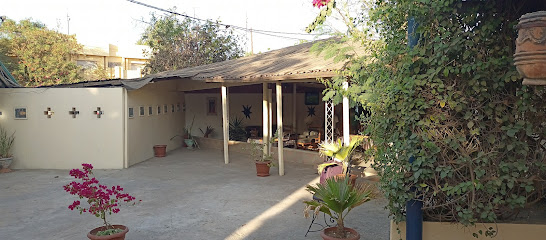
Le Farisse
Discover the heart of Senegalese cuisine at Le Farisse, the perfect dining destination in Kaolack for a taste of authentic local flavors.
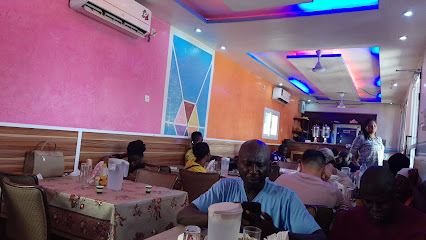
RESTAURANT MANCHALLAH
Experience the vibrant flavors of Senegal at Restaurant Manchallah, where local culture meets culinary excellence in Kaolack.
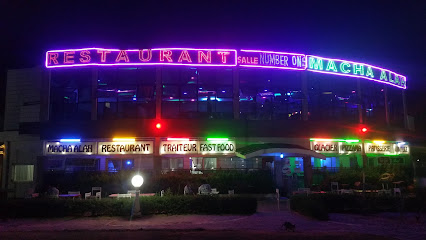
La Fontaine
Discover the flavors of Senegal at La Fontaine, a charming restaurant in Kaolack offering authentic cuisine in a welcoming atmosphere.
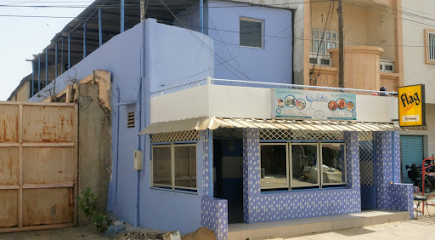
Kuyito
Experience the authentic flavors of Senegal at Kuyito, a vibrant restaurant in Kaolack that embodies the essence of local cuisine and culture.
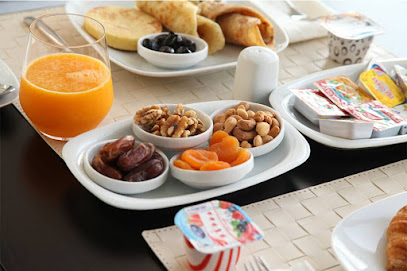
Restaurant Téranga Chez Anna
Experience the rich flavors of Senegalese cuisine at Restaurant Téranga Chez Anna, a delightful dining spot in Kaolack.
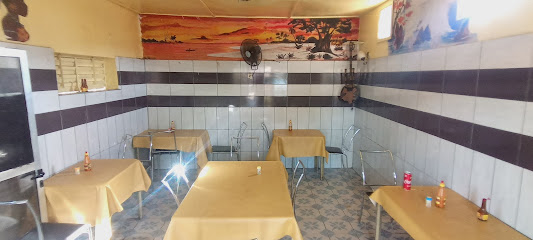
TROPICAL
Experience the vibrant flavors of Senegal at Tropical Restaurant in Kaolack, a culinary oasis offering a taste of local culture and hospitality.
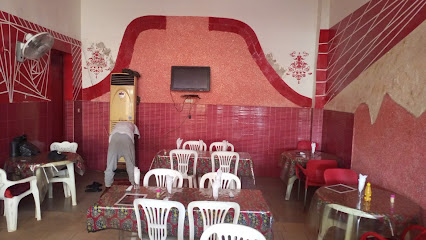
Restaurant LA PALASSE
Experience the vibrant flavors and warm hospitality of Kaolack at Restaurant LA PALASSE, where culinary excellence meets a charming ambiance.
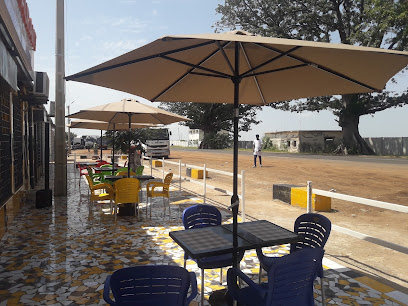
bar chez maman treze
Discover authentic Senegalese cuisine at Bar Chez Maman Treze in Kaolack, where every dish tells a story of local heritage and flavor.

Bar familly
Discover local flavors and warm hospitality at Bar Familly in Kaolack, a perfect spot for tourists to unwind and connect with the community.
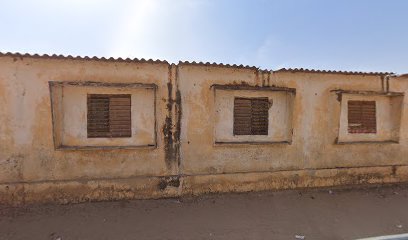
Auberge De L'amitié Keur Bourg
Discover the lively ambiance and rich local culture at Auberge De L'amitié Keur Bourg, a must-visit girl bar on your Senegalese adventure.
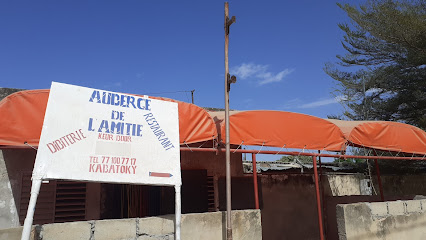
Local Phrases
-
- HelloSalam alekum
[sa-lam a-le-kum] - GoodbyeBa ci kanam
[ba chi ka-nam] - YesWaaw
[waaw] - NoDéedéet
[dee-deet] - Please/You're welcomeJërejëf
[je-re-jef] - Thank youJërëjëf
[je-re-jef] - Excuse me/SorryNio far
[nio far] - How are you?Nanga def?
[nan-ga def] - Fine. And you?Nopp. Awa la?
[nop. a-wa la] - Do you speak English?Bëgguma def Englisy?
[be-ggu-ma def en-gli-sy] - I don't understandDinaa ma la
[di-naa ma la]
- HelloSalam alekum
-
- I'd like to see the menu, pleaseNëbb naa ñu jëfandik, jërejëf
[neb naa nu je-fan-dik, je-re-jef] - I don't eat meatDafa nekk la xar
[da-fa nek la khar] - Cheers!Sante
[san-te] - I would like to pay, pleaseNëbb naa la xalis, jërejëf
[neb naa la kha-lis, je-re-jef]
- I'd like to see the menu, pleaseNëbb naa ñu jëfandik, jërejëf
-
- Help!Ndër!
[nder] - Go away!Dofal!
[do-fal] - Call the Police!Noppal koor!
[nop-pal kor] - Call a doctor!Noppal docteur!
[nop-pal doc-teur] - I'm lostMaa ngi xew
[maa nji kheu] - I'm illDafa ñuy sante
[da-fa nu san-te]
- Help!Ndër!
-
- I'd like to buy...Nëbb naa ñu jëlle...
[neb naa nu jel-le] - I'm just lookingNëbb naa laa taxaw
[neb naa laa ta-khaw] - How much is it?Noppalaa?
[nop-pa-laa] - That's too expensiveMangi ci kaw
[man-gi chi kaw] - Can you lower the price?Dëkk lay xalis
[dek lay kha-lis]
- I'd like to buy...Nëbb naa ñu jëlle...
-
- What time is it?Waxtu bi?
[wakh-tu bi] - It's one o'clockWaxtu benn
[wakh-tu ben] - Half past (10)Njukk yob
[nju-kk yob] - MorningJële
[je-le] - AfternoonNëbbu
[neb-bu] - EveningBëggé
[be-gge] - YesterdayNoppaale
[nop-paa-le] - TodayNopp
[nop] - TomorrowNoppalaa
[nop-pa-laa] - 1Benn
[ben] - 2Jëllof
[je-lof] - 3Nde
[nde] - 4Nerte
[ner-te] - 5Juroom
[ju-room] - 6Juróom jëllof
[ju-room je-lof] - 7Juróom nde
[ju-room nde] - 8Juróom nerte
[ju-room ner-te] - 9Juróom juroom
[ju-room ju-room] - 10Fukk
[fukk]
- What time is it?Waxtu bi?
-
- Where's a/the...?Dëkkoon yëg...
[dek-koon yeg] - What's the address?Xeebu bi nekku?
[khe-bu bi nek-ku] - Can you show me (on the map)?Dëkk lay bëgg?
[dek lay begg] - When's the next (bus)?Waxtu bi ci kaw ci?
[wakh-tu bi chi kaw chi] - A ticket (to ....)Billet (ci ...)
[bi-ll-et chi]
- Where's a/the...?Dëkkoon yëg...
History of Kaolack
-
The region where Kaolack is located has been inhabited for centuries, with its early settlements dating back to pre-colonial times. The Serer people, one of the ethnic groups in Senegal, were among the first to establish communities in this area. They built intricate societies with agriculture, fishing, and trade at their core. The fertile lands and strategic location near the Saloum River contributed to the area's early development.
-
The Saloum Kingdom, established in the 15th century, played a significant role in the history of Kaolack. As part of the Serer Kingdoms, Saloum was a center of power, culture, and trade. The kingdom's rulers, known as 'Maad Saloum,' governed the region and established Kaolack as an important trading hub. The Saloum Kingdom thrived on the exchange of goods such as salt, fish, and millet, which were transported along the Saloum River.
-
In the late 19th century, Kaolack came under French colonial rule. The French recognized the strategic importance of Kaolack's location and developed it as a commercial center. They built infrastructure, including roads and railways, to facilitate the export of groundnuts, which became a major cash crop. The colonial period also saw the introduction of Western education and Christianity, which influenced the region's cultural landscape.
-
Senegal gained independence from France in 1960, and Kaolack continued to develop as an important economic and cultural center. The post-colonial period saw significant investments in education, healthcare, and infrastructure. Kaolack's market, one of the largest in Senegal, became a bustling center for trade, attracting merchants and buyers from across the country and beyond. The city's rich cultural heritage, including traditional music and dance, flourished in this period.
-
Kaolack is known for its religious and cultural diversity. The city is home to several significant Islamic institutions and mosques, reflecting the importance of Islam in the region. Additionally, Kaolack hosts various cultural festivals and events that celebrate the rich traditions of the Serer people and other ethnic groups. The 'Gamo' festival, for instance, is a major religious event that attracts thousands of visitors each year.
-
Today, Kaolack is a vibrant city that blends its historical heritage with modern developments. It remains an important commercial hub, with its market continuing to draw traders from across West Africa. The city's educational institutions and cultural centers play a crucial role in preserving and promoting the region's history and traditions. Kaolack's unique blend of historical significance and contemporary dynamism makes it a fascinating destination for visitors.
Kaolack Essentials
-
Kaolack is accessible via Blaise Diagne International Airport (DSS) located around 150 kilometers away in Dakar. From Dakar, you can hire a taxi, take a bus, or rent a car for the approximately 2-hour drive to Kaolack. Additionally, intercity buses and minibuses (known as 'sept-places') connect Dakar to Kaolack, offering an affordable means of transportation.
-
Once in Kaolack, you can get around using local taxis, which are plentiful and relatively inexpensive. For a more authentic experience, consider taking a ride in a 'car rapide'—a colorful, shared minibus. For short distances, horse-drawn carts known as 'caleches' are also a unique way to travel. If you prefer more control over your itinerary, renting a car is a feasible option, though driving can be challenging due to traffic conditions and local driving habits.
-
The official currency in Senegal is the West African CFA Franc (XOF). Credit cards are accepted in some hotels, restaurants, and larger shops, but cash is preferred in smaller establishments and local markets. ATMs are available in Kaolack, but it’s advisable to carry cash for emergencies. Currency exchange services are also available, although rates may vary.
-
Kaolack is generally safe for tourists, but like any other city, it is important to take standard precautions. Avoid walking alone at night, especially in poorly lit areas. Pickpocketing can occur in crowded places such as markets. Areas with higher crime rates targeting tourists include the bus stations and some parts of the central market. Always keep an eye on your belongings and be cautious of your surroundings.
-
In case of emergency, the local emergency number is 17 for police assistance and 18 for fire-related emergencies. Medical facilities in Kaolack are limited, but there is a regional hospital—Centre Hospitalier Régional de Kaolack—that can handle most emergencies. It is advisable to have travel insurance that covers medical emergencies. For minor health issues, pharmacies are available in the city where you can purchase over-the-counter medications.
-
Fashion: Do dress modestly, especially when visiting religious sites. Avoid wearing revealing clothing. Religion: Do respect local customs and traditions, such as removing your shoes before entering a mosque. Public Transport: Do be respectful and give up your seat to elderly passengers. Don't play loud music or eat on public transport. Greetings: Do greet people with a handshake and a friendly smile. A slight nod of the head is also a sign of respect. Eating & Drinking: Do try local delicacies and accept food offerings graciously. Don’t use your left hand when eating or handing something to someone, as it is considered impolite.
-
To experience Kaolack like a local, visit the Marché Central (Central Market) where you can buy fresh produce, spices, and traditional goods. Engage with the locals, who are generally friendly and open to sharing stories about their culture and history. Don’t miss a visit to the Saloum Delta, a UNESCO World Heritage Site, where you can enjoy bird watching and boat tours. For a unique experience, visit the weekly livestock market, a vibrant and bustling event.
Trending Landmark in Kaolack
-
Great Mosque of Medina Baye Kaolack
-
Adjana Hotel
-
Restaurant Blue Bird
-
DJOLLOFF INN
-
Grande Mosquée Léona Niassène
-
Mosquée de Keur Serigne Maloum Diaw Kaloack
-
Mosquée de Kaolack
-
Middle School Mboutou Sow
-
Mosquée de Kaolack-Sud
-
Leona Niassene
-
Grande Mosquée de Mboulougne
-
Monument Texas
-
Abdoulaye Papa Dame
-
Kaolack Infos
-
Grande mosquée Ndorongu Kaolack
Nearby Cities to Kaolack
-
Things To Do in Farafenni
-
Things To Do in Banjul
-
Things To Do in Soma
-
Things To Do in Bakau
-
Things To Do in Mbour
-
Things To Do in Serekunda
-
Things To Do in Serrekunda
-
Things To Do in Lamin
-
Things To Do in Thiès
-
Things To Do in Brikama
-
Things To Do in Gunjur
-
Things To Do in Janjanbureh
-
Things To Do in Dakar
-
Things To Do in Saint-Louis
-
Things To Do in Canchungo







